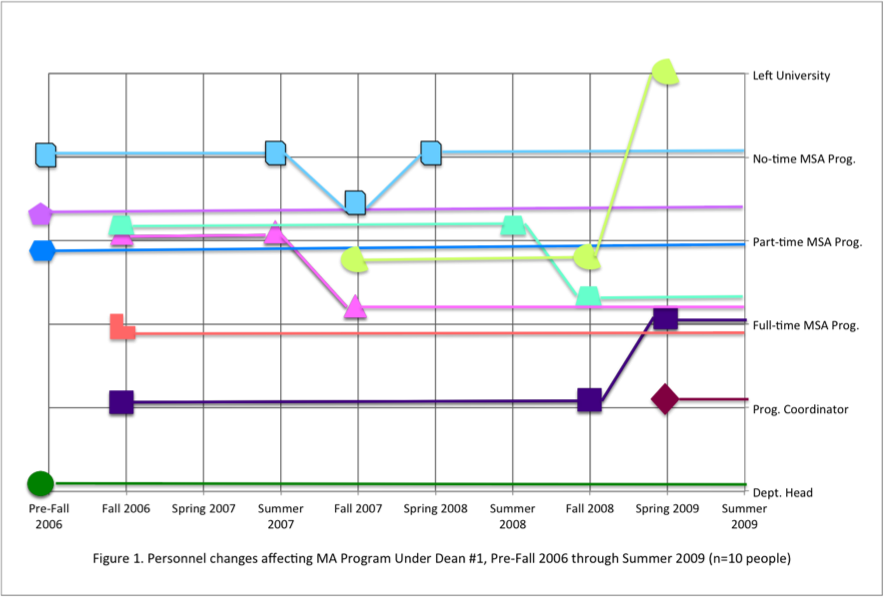| << Chapter < Page | Chapter >> Page > |
We expanded our enrollment to two cohorts (2 and 3) in spring 20010 and FME co-taught Ethical School Leadership with me. Instead of creating two independent online sections, we ran both in a common shell. I served as the lead teacher, fulfilling most of the course management pieces. We divided each cohort into exclusive small learning groups for most course discussions and for grading of assignments, though we did include a few whole group (both cohorts) discussion topics. FME worked with the groups from cohort 3 and I worked with the groups from cohort 2. This was a rewarding experience for both of us, as we shared common values and views about learning and teaching. FME was able to provide a critical and constructive perspective to improve the course. Our collaboration in the course continued through the fall of 2010. Expanded enrollments also allowed FMC2 to phase out of teaching C&I courses and become full-time in the MSA. While there had been some changes in personnel since the fall of 2006, engagement of faculty in the MSA had generally increased (Figure 1).

Figure 1 . Graph of changes in position in relation to participation in the MSA during three years with Dean1.
What, to this point, has been a relatively clear story becomes tangled and fuzzy, at least in my own mind. I consulted numerous meeting agendas and notes to reconstruct this year, yet the number, degree, and emotionality of changes make reconstruction challenging. Much of what follows must be read with the understanding that my perspective is colored by a degree of negativity.
Year two was one of contrasts. We experienced a number of significant accomplishments, including the full implementation of the program, completion in the spring and summer of our first three cohorts, and approval of the program by important state bodies. These positive events were contrasted by several stressors. DPI accountability requirements forced us to move from an idealistic to a more pragmatic mindset. Changes in college and departmental leadership and MSA faculty makeup had a significant impact on how we functioned as a PLC. Once the program had been fully implemented, the PLC began to deal with issues that, earlier unrecognized, became contentious and fractious.
Accomplishments. In the spring and summer of 2010, our first cohorts completed the program. These 37 participants gave rave reviews of their experiences in the program. They achieved some significant results with their BHAGs, including developing an active PLC of reading teachers, implementing culturally responsive pedagogy with a group of 4 th grade teachers, and structuring an elementary intervention program that helped teachers provide support for struggling students instead of referring them for special education testing.
We continued to refine the program, making some significant changes. However, the fact that we had actually implemented the program we idealistically dreamed up three years earlier, and that we saw such positive results, was exhilarating. Additionally, the new program was approved by both the University of North Carolina’s General Administration and by DPI.

Notification Switch
Would you like to follow the 'Ncpea handbook of online instruction and programs in education leadership' conversation and receive update notifications?